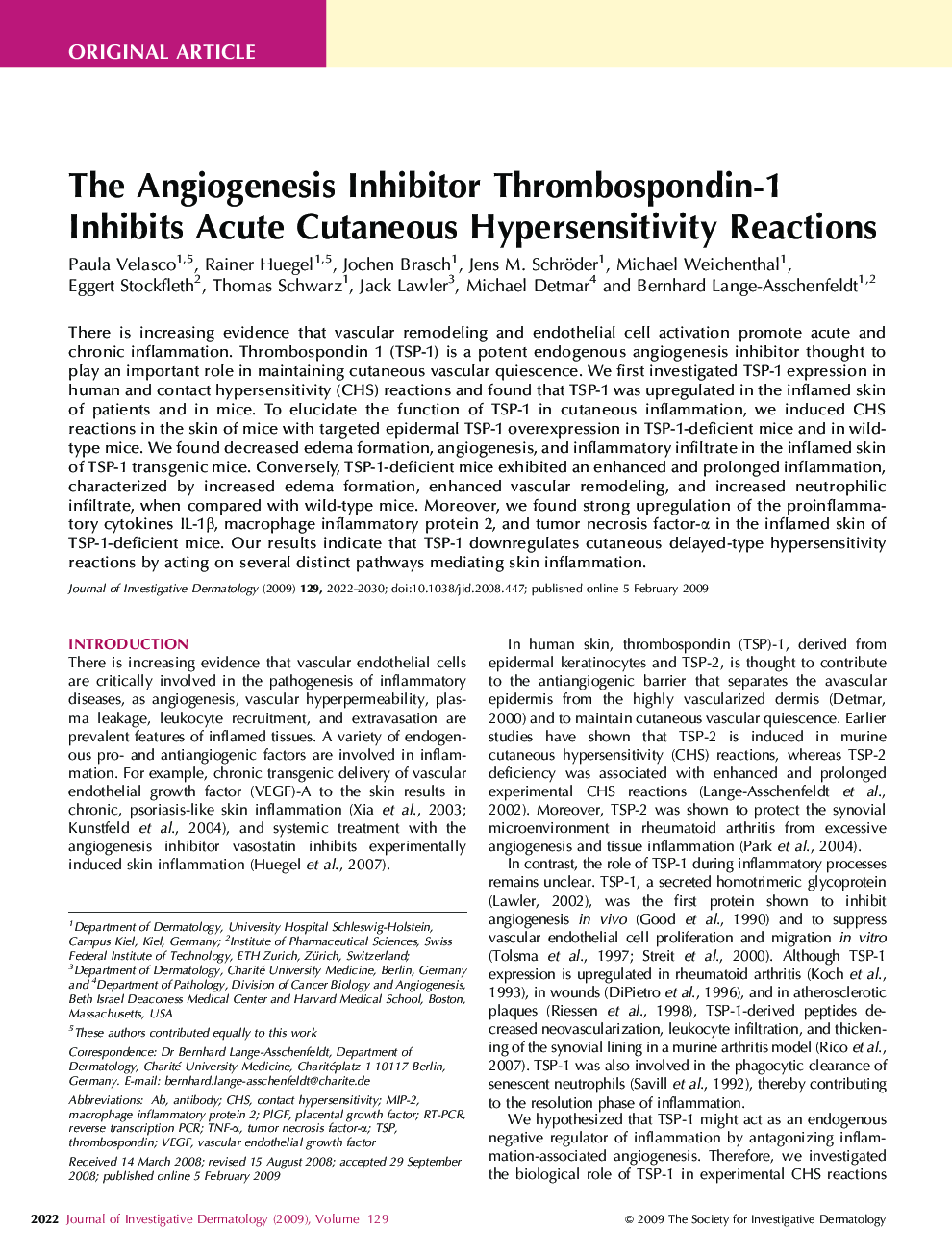| Article ID | Journal | Published Year | Pages | File Type |
|---|---|---|---|---|
| 3216843 | Journal of Investigative Dermatology | 2009 | 9 Pages |
Abstract
There is increasing evidence that vascular remodeling and endothelial cell activation promote acute and chronic inflammation. Thrombospondin 1 (TSP-1) is a potent endogenous angiogenesis inhibitor thought to play an important role in maintaining cutaneous vascular quiescence. We first investigated TSP-1 expression in human and contact hypersensitivity (CHS) reactions and found that TSP-1 was upregulated in the inflamed skin of patients and in mice. To elucidate the function of TSP-1 in cutaneous inflammation, we induced CHS reactions in the skin of mice with targeted epidermal TSP-1 overexpression in TSP-1-deficient mice and in wild-type mice. We found decreased edema formation, angiogenesis, and inflammatory infiltrate in the inflamed skin of TSP-1 transgenic mice. Conversely, TSP-1-deficient mice exhibited an enhanced and prolonged inflammation, characterized by increased edema formation, enhanced vascular remodeling, and increased neutrophilic infiltrate, when compared with wild-type mice. Moreover, we found strong upregulation of the proinflammatory cytokines IL-1β, macrophage inflammatory protein 2, and tumor necrosis factor-α in the inflamed skin of TSP-1-deficient mice. Our results indicate that TSP-1 downregulates cutaneous delayed-type hypersensitivity reactions by acting on several distinct pathways mediating skin inflammation.
Related Topics
Health Sciences
Medicine and Dentistry
Dermatology
Authors
Paula Velasco, Rainer Huegel, Jochen Brasch, Jens M. Schröder, Michael Weichenthal, Eggert Stockfleth, Thomas Schwarz, Jack Lawler, Michael Detmar, Bernhard Lange-Asschenfeldt,
